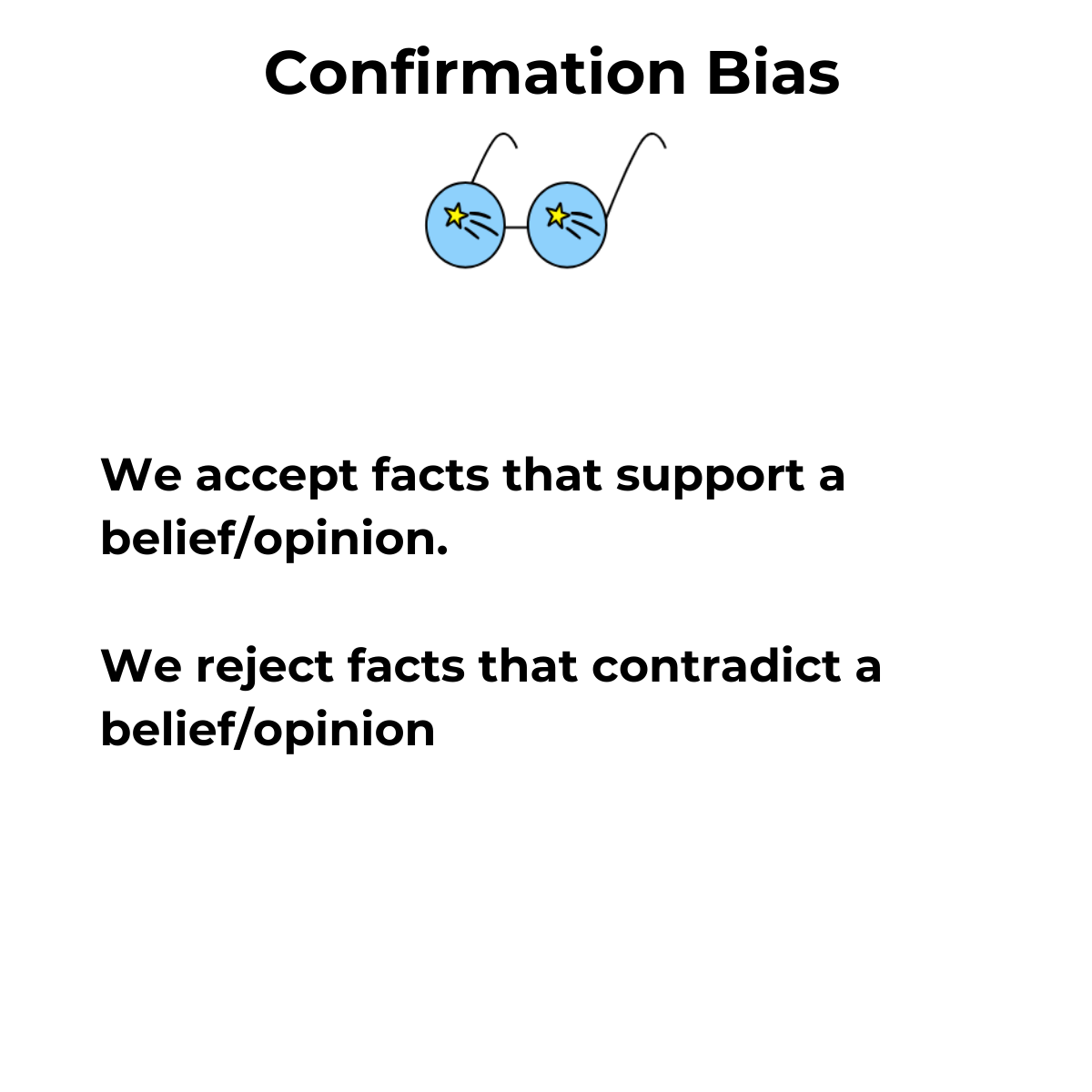
Being humans, we often fool ourselves, both in business and in our personal lives. If we are aware of thinking traps, we are less likely to fall into them.
One thinking trap is the "Confirmation bias".
📝 We see and accept information that confirms a belief or opinion.
💰 We reject information or facts that contradict the belief or opinion.

👔 Hiring & Recruitment: A manager forms a strong first impression of a candidate and then interprets all later evidence (interviews, references) to confirm that initial belief.
📊 Market Research: Teams emphasize positive survey results that support their product idea while ignoring critical or negative feedback.
💹 Investing: Investors convinced tech stocks will keep rising only follow optimistic analyst reports, avoiding bearish perspectives.Example - the dot.com bubble
🏢 Strategic Planning: Executives in favor of a merger highlight evidence of “synergies” while downplaying cultural or operational risks.
📈 Sales Forecasting: Sales leaders project future growth from a streak of wins, while ignoring data on customer churn or market downturns.
🚀 Entrepreneurship: Founders fixate on enthusiastic early adopters and discount feedback from a broader, less interested market.
🤝 Negotiations: A negotiator latches onto any sign the other party will accept their terms and disregards evidence that the deal may collapse.
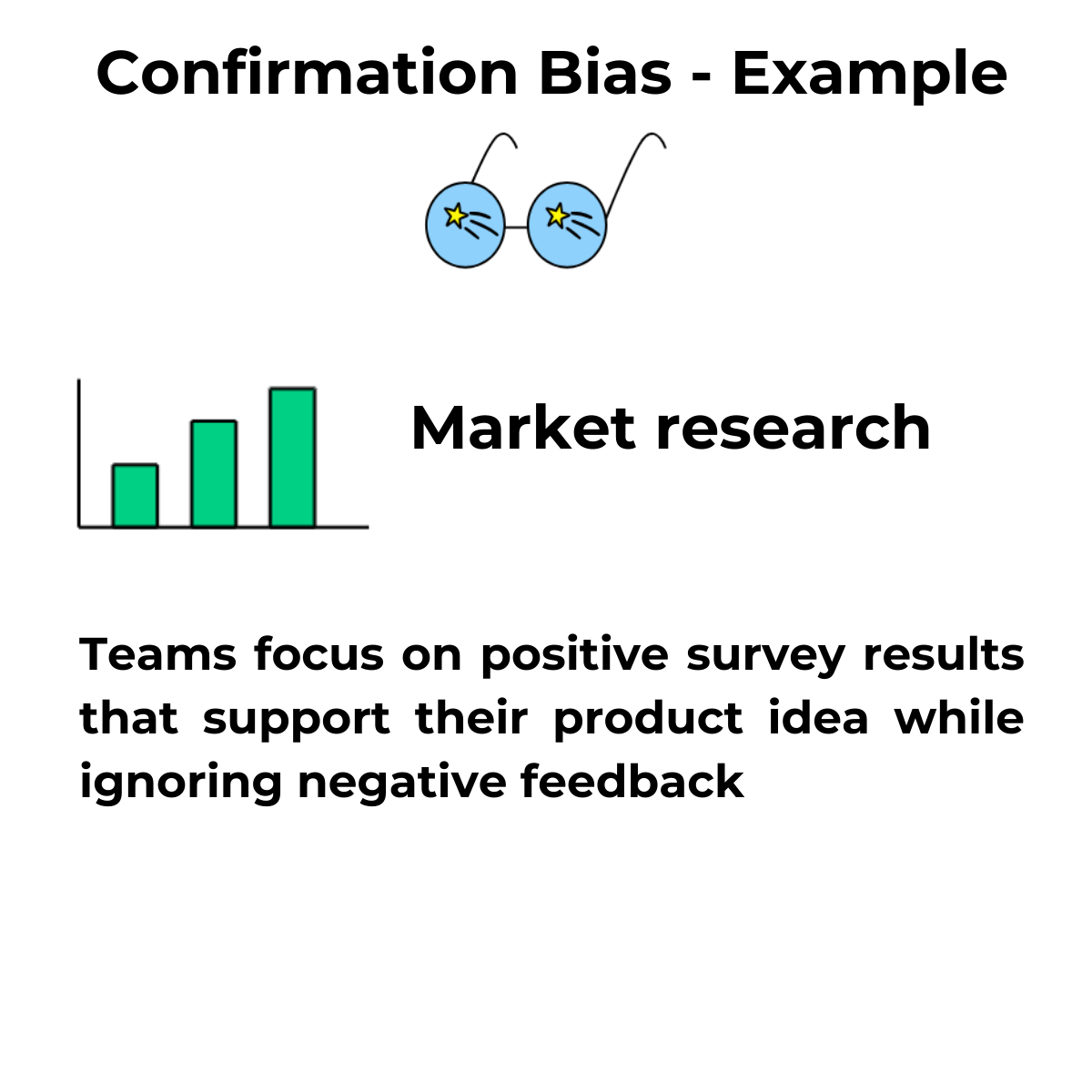
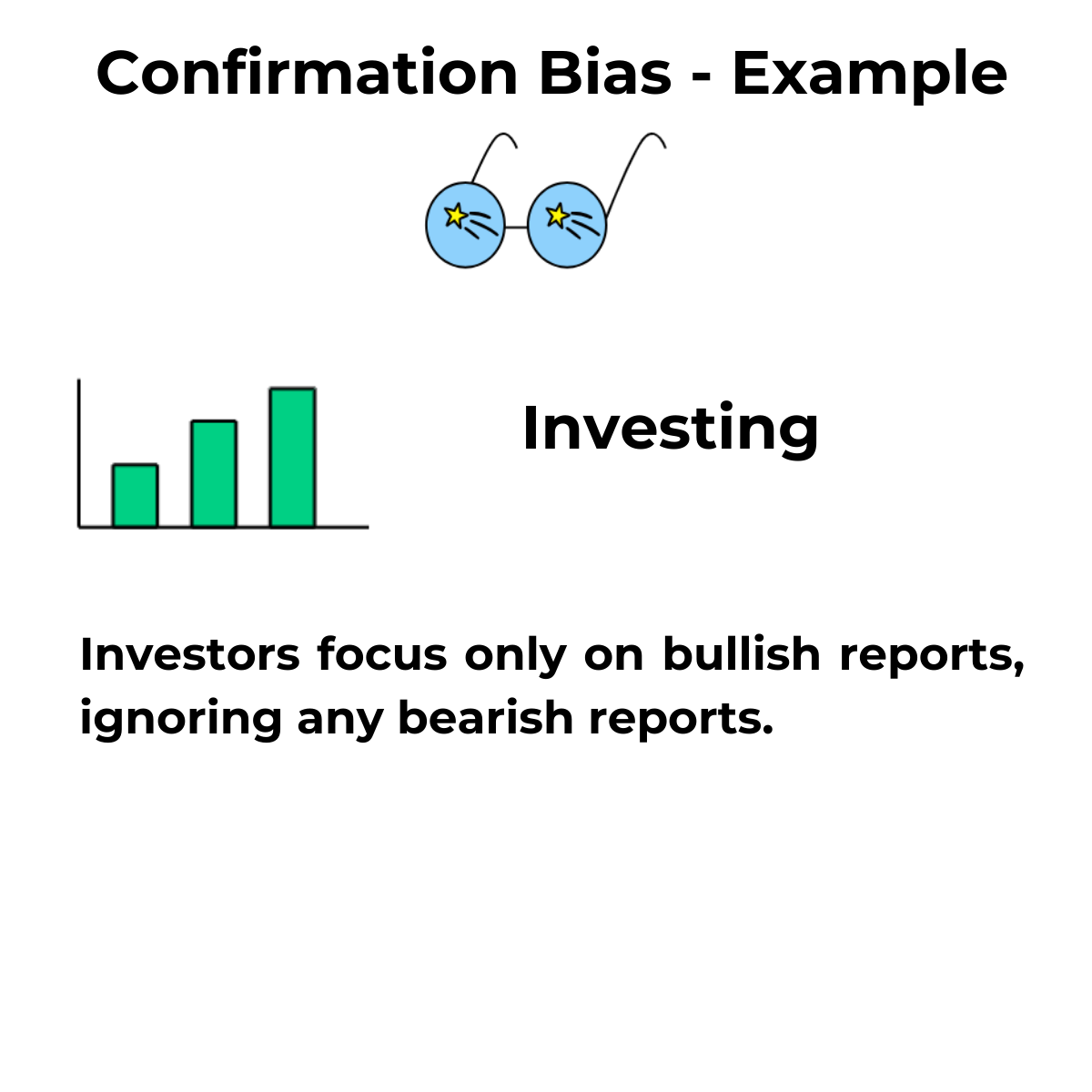
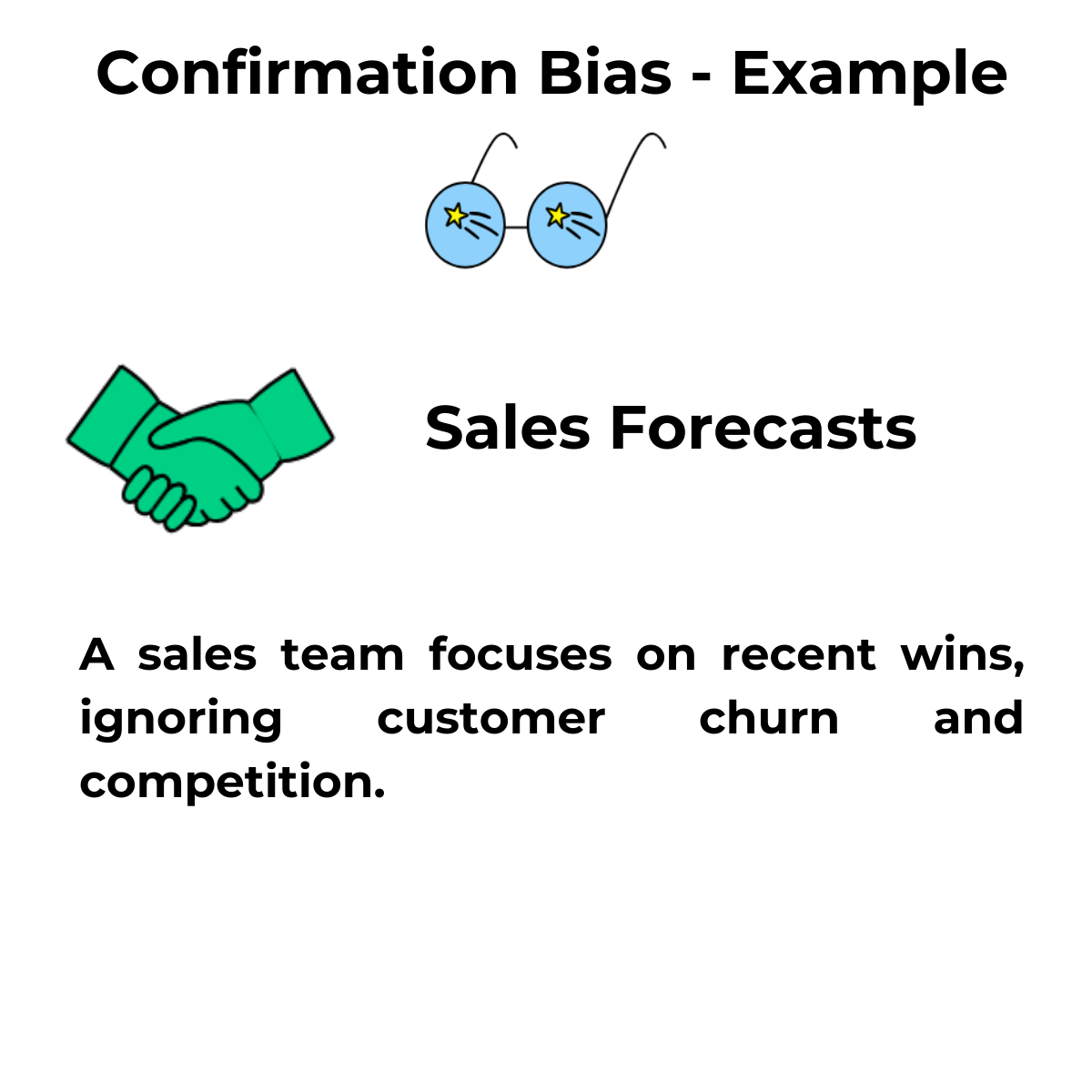
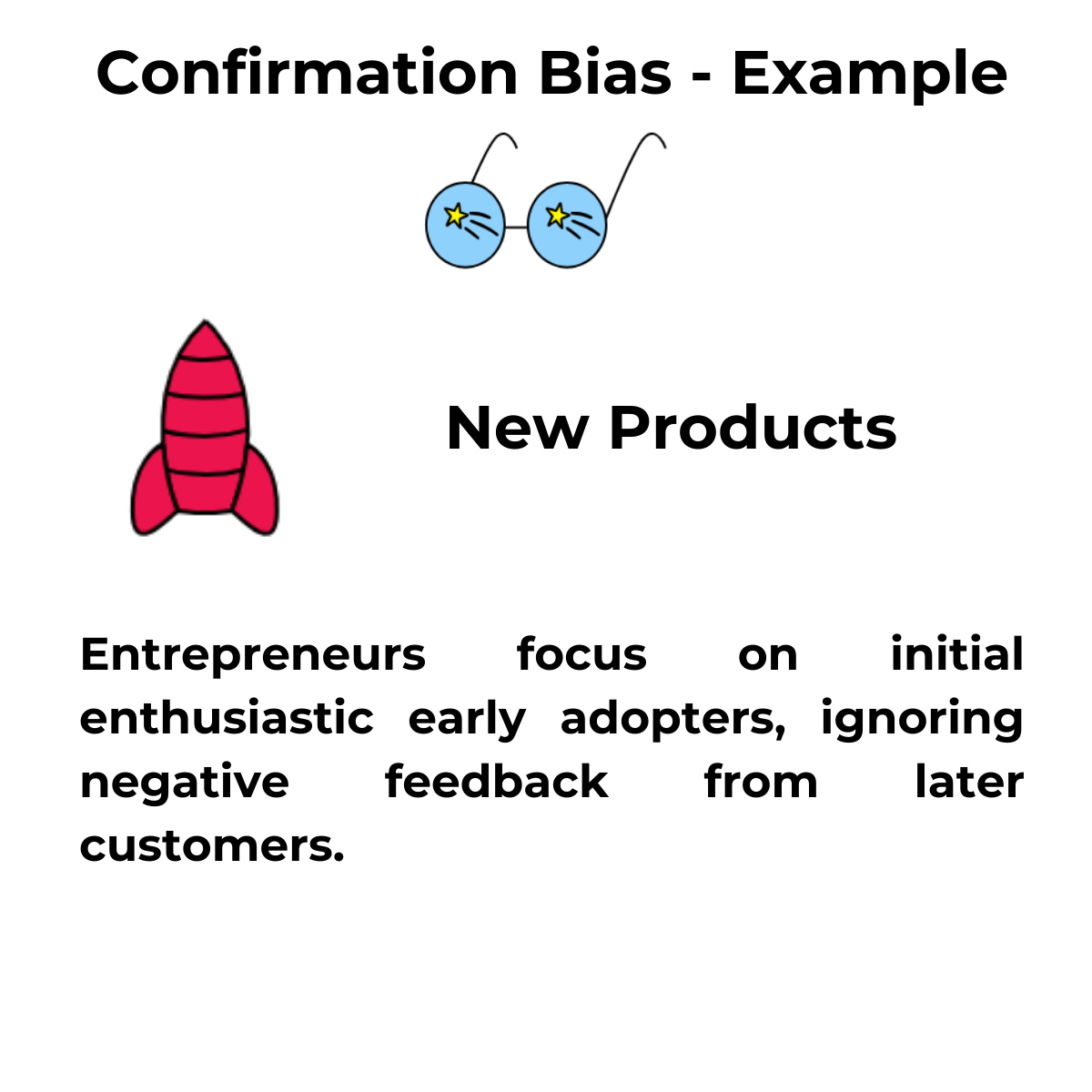
🥤 Coca-Cola (New Coke, 1985): Focused on sweet-taste test wins while ignoring brand attachment to “Classic Coke.” Backlash forced a return to the original formula. 🔁
🎬📼➡️📺 Blockbuster vs. Netflix (early 2000s): Assumed in-store rentals would remain dominant, discounted mail/streaming signals. Netflix’s model prevailed; Blockbuster collapsed. 📉
🧭🔎 Yahoo (1990s–2000s): Saw itself as a “portal,” underweighted evidence that superior search quality mattered most. Google seized leadership. 🚀
📱⌨️ BlackBerry (2007–2010): Overweighted beliefs about physical keyboards & enterprise email; underweighted consumer demand for touchscreens/apps after iPhone. Market share plunged. 📉
📷🎞️ Kodak (1970s–2000s): Protected film profits and downplayed its own digital camera invention. Rivals led digital; Kodak filed for bankruptcy. 🏚️
🌐📈💥 Dot-Com Investors (late 1990s): Amplified “growth story” headlines, ignored fundamentals (revenue/cash flow). Bubble burst erased massive value. 💸
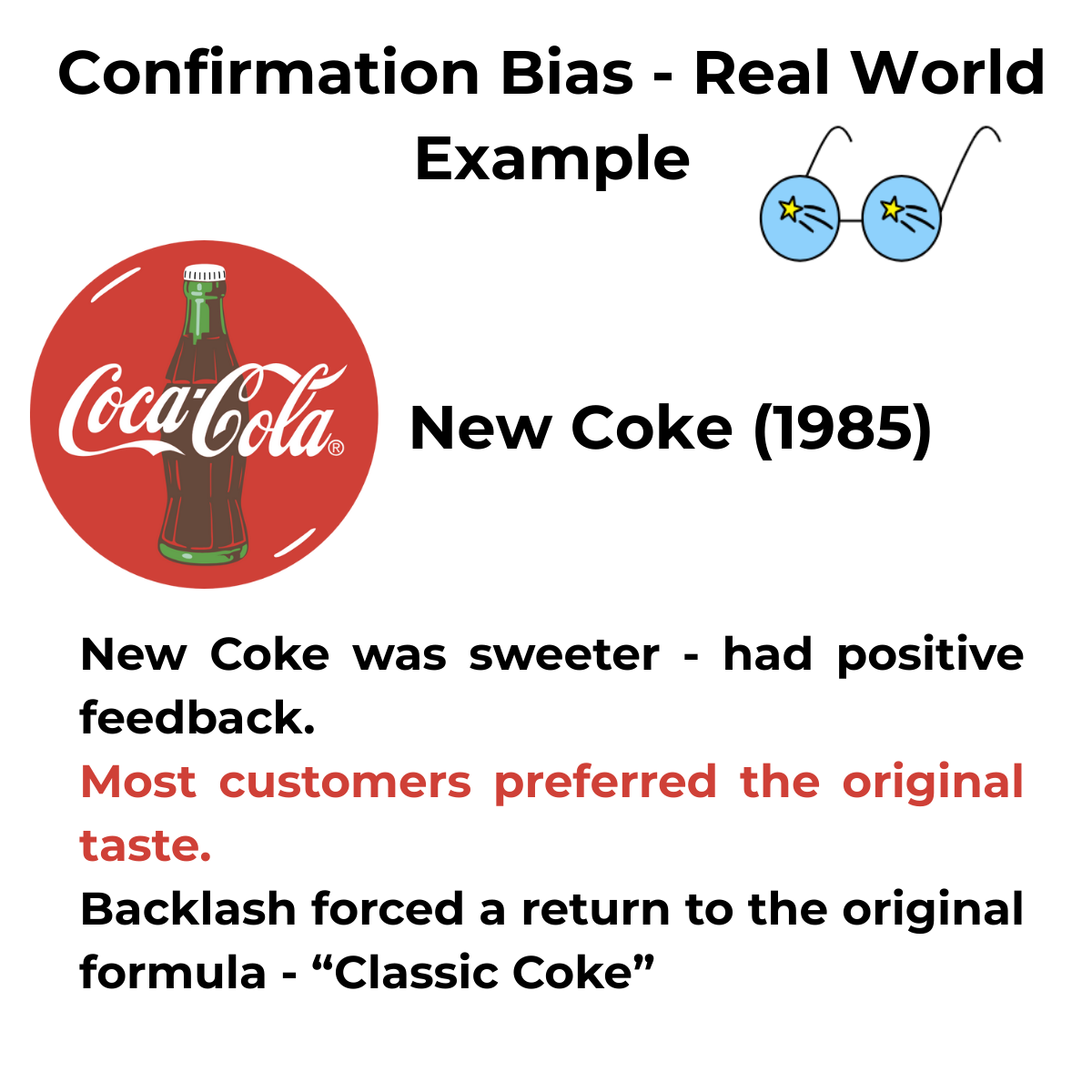
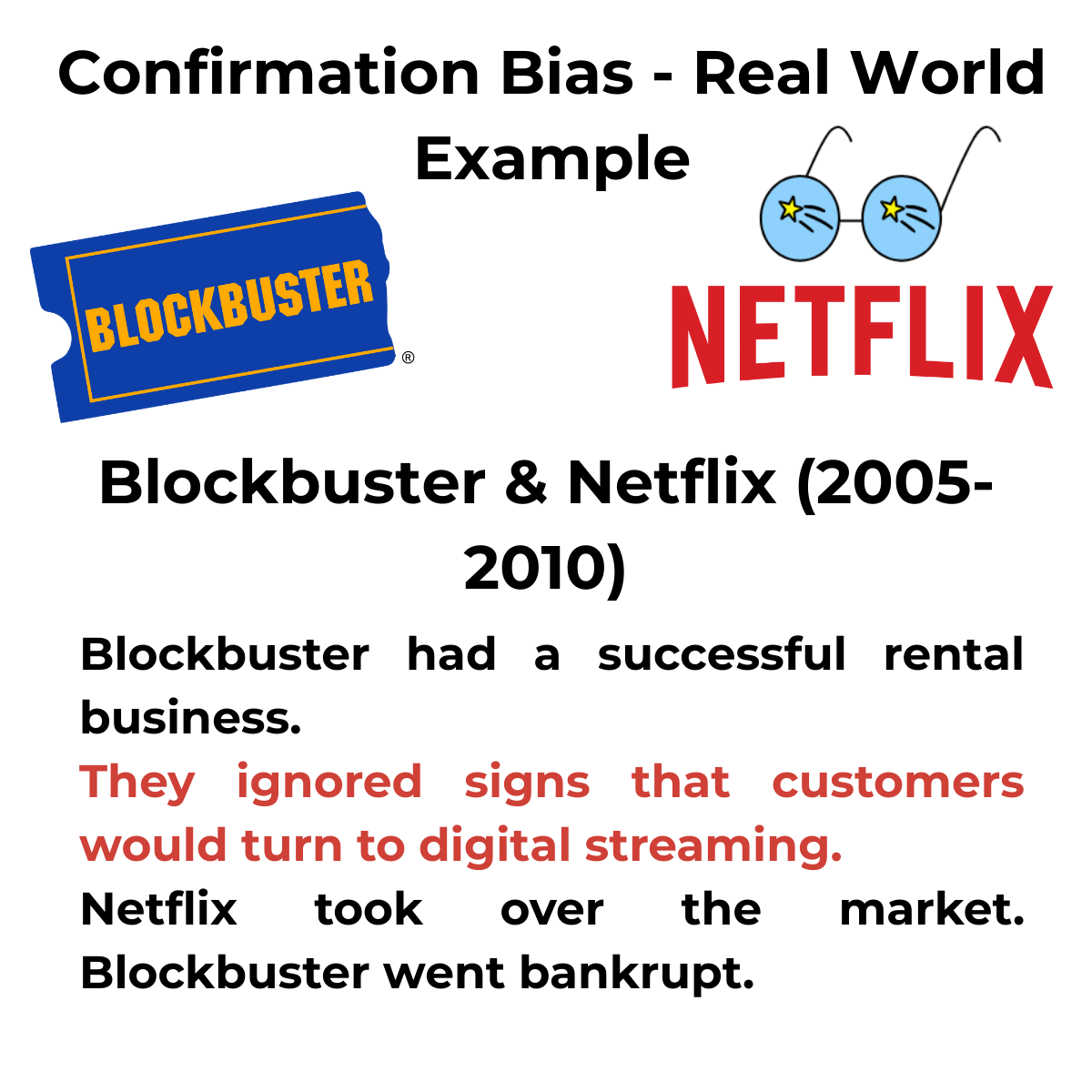
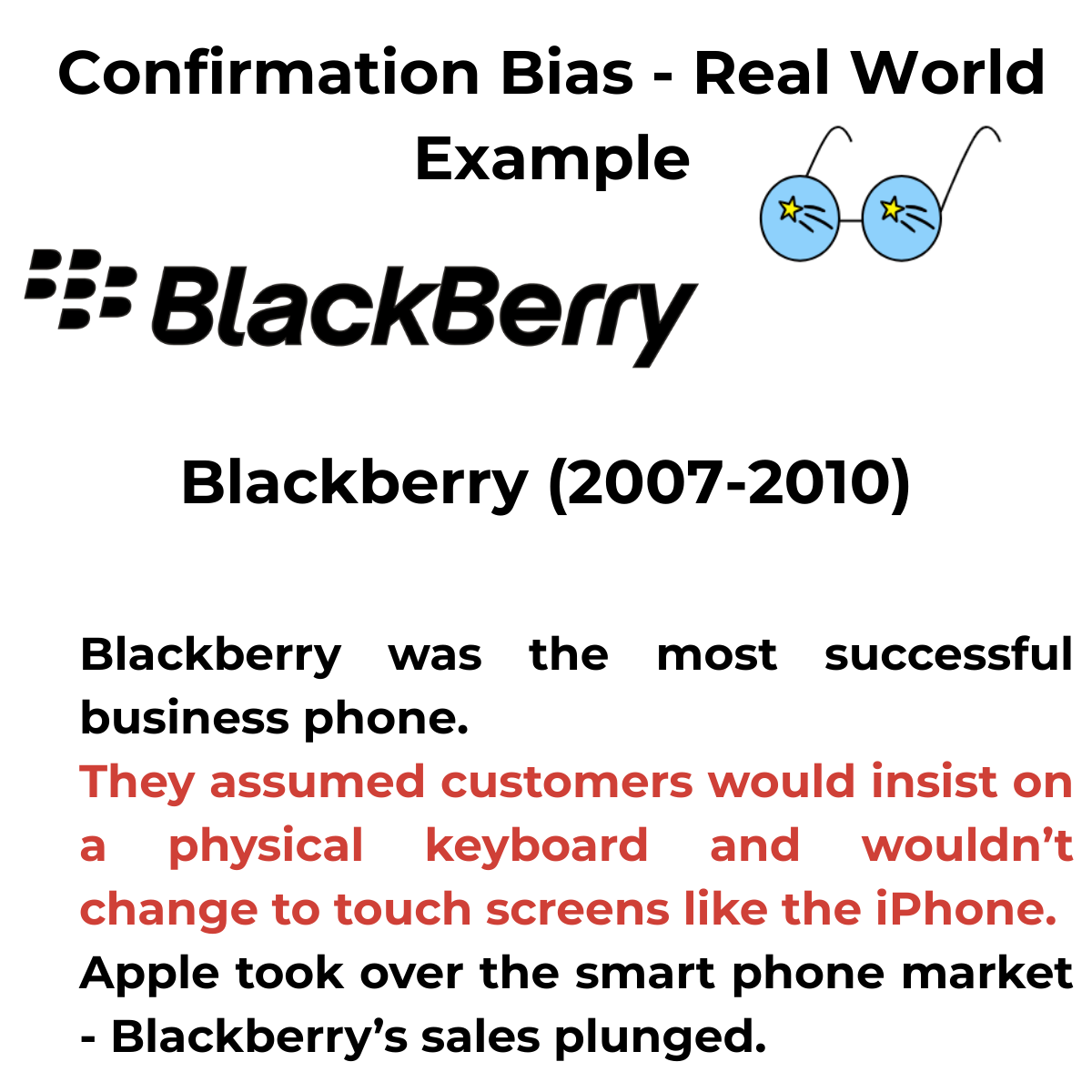
❓ Questions to Ask Yourself:
👔 Hiring & Recruitment: Am I focusing only on information that supports my first impression of this candidate, while ignoring warning signs?
📊 Market Research: Am I highlighting survey results that confirm my product idea, while dismissing negative or critical feedback?
💹 Investing: Am I only reading bullish reports that support my decision to buy this stock, while avoiding evidence that suggests risks?
🏢 Strategic Planning: Am I seeking reports that prove this merger will work, while ignoring data about cultural clashes or integration problems?
📈 Sales Forecasting: Am I projecting growth because of a few recent wins, while downplaying churn or market downturns?
🚀 Entrepreneurship: Am I only listening to enthusiastic early adopters, while neglecting the wider market’s lukewarm response?
🤝 Negotiations: Am I interpreting small signals as proof the other side will accept my terms, while ignoring signs they may walk away?
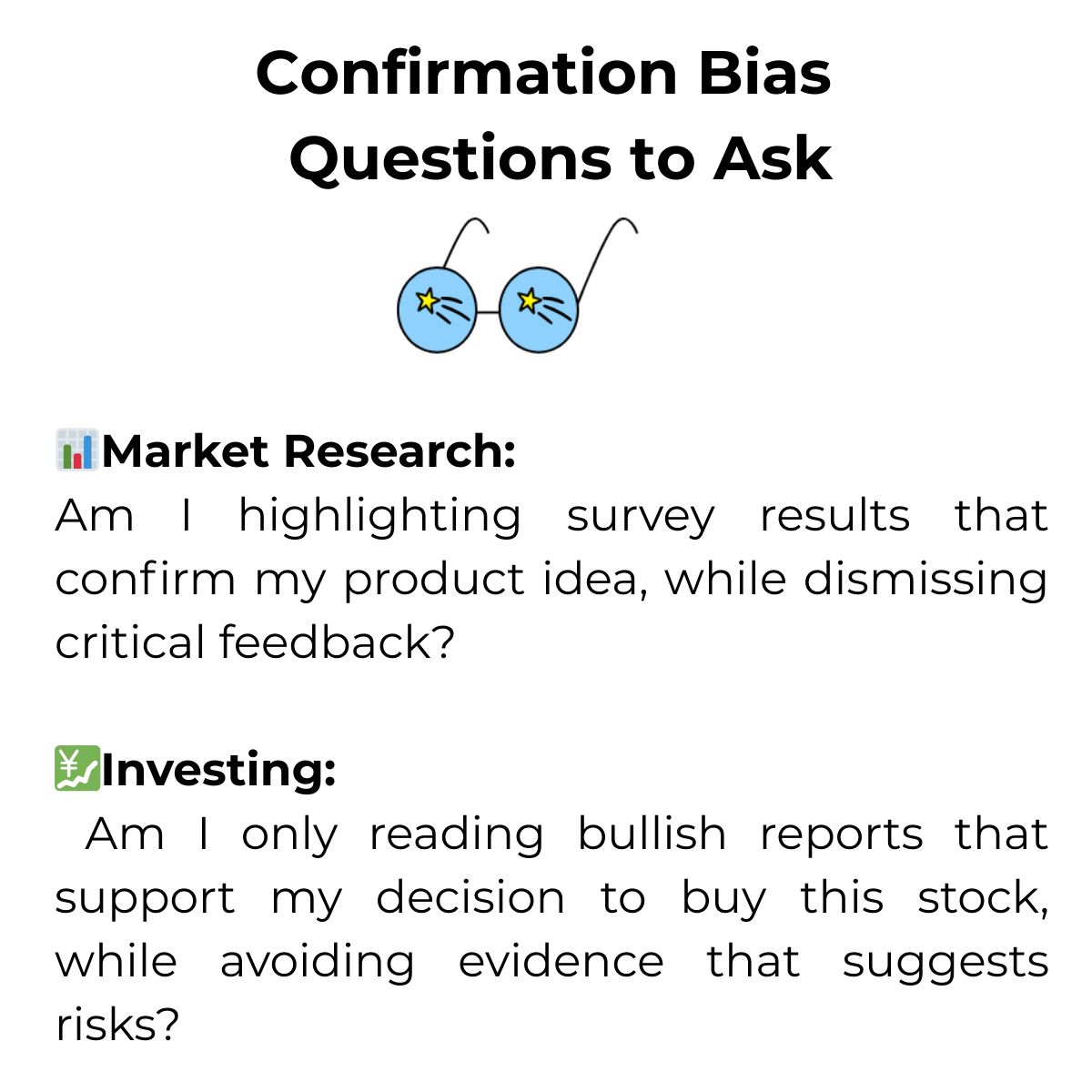
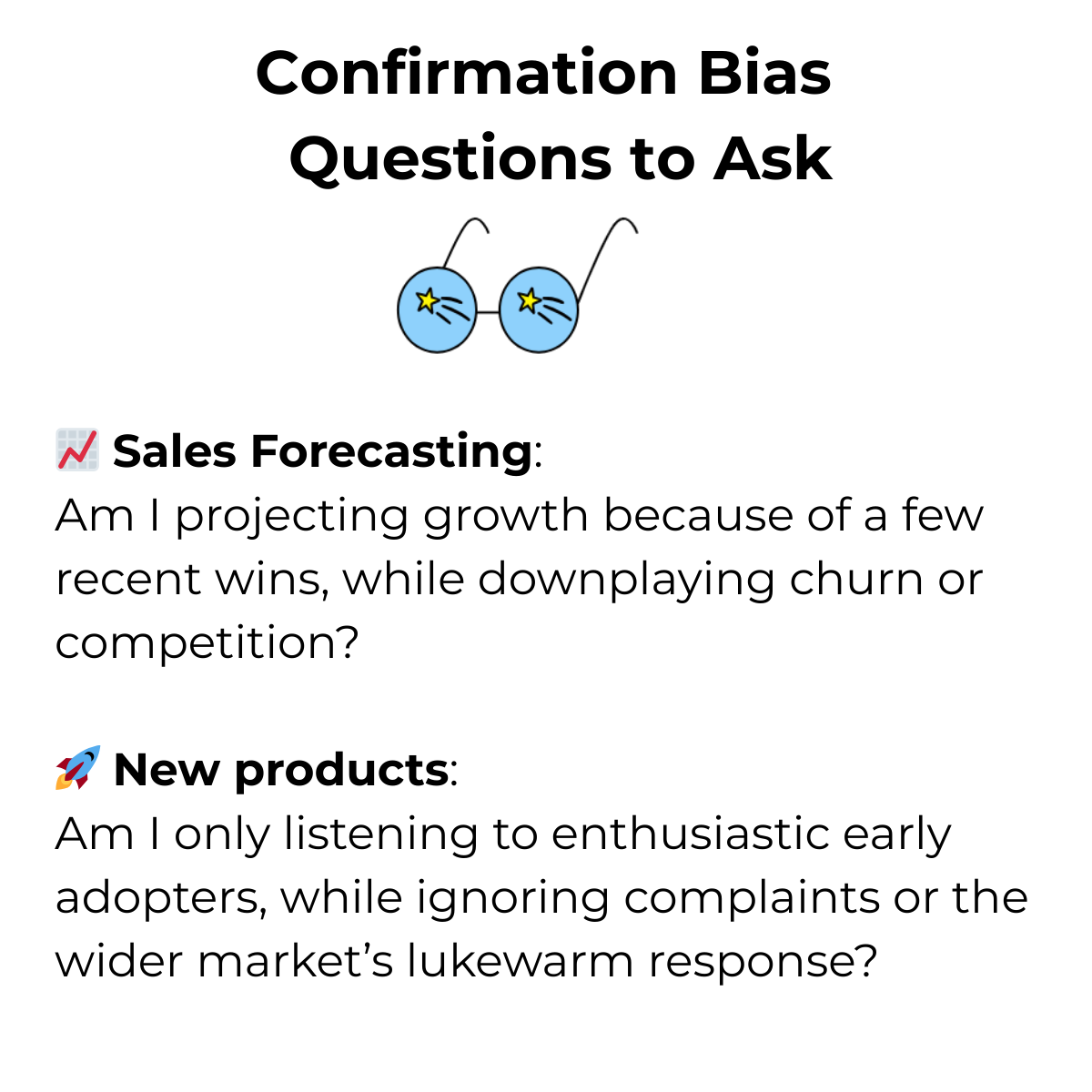
🌐 Resources:
🔗 Verywell Mind – What is Confirmation Bias?
🔗 The Decision Lab – Confirmation Bias
🔗 Harvard Business Review – Search "confirmation bias"